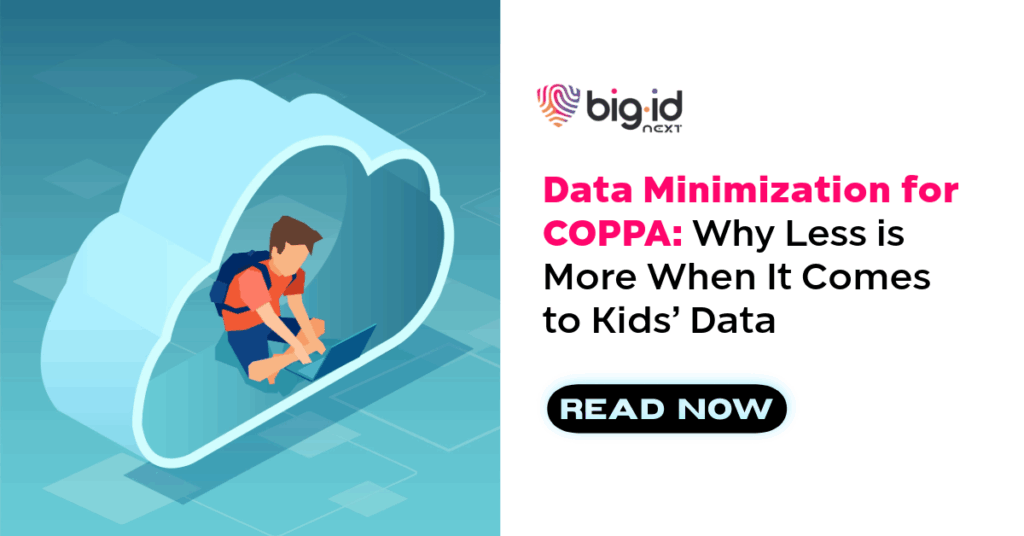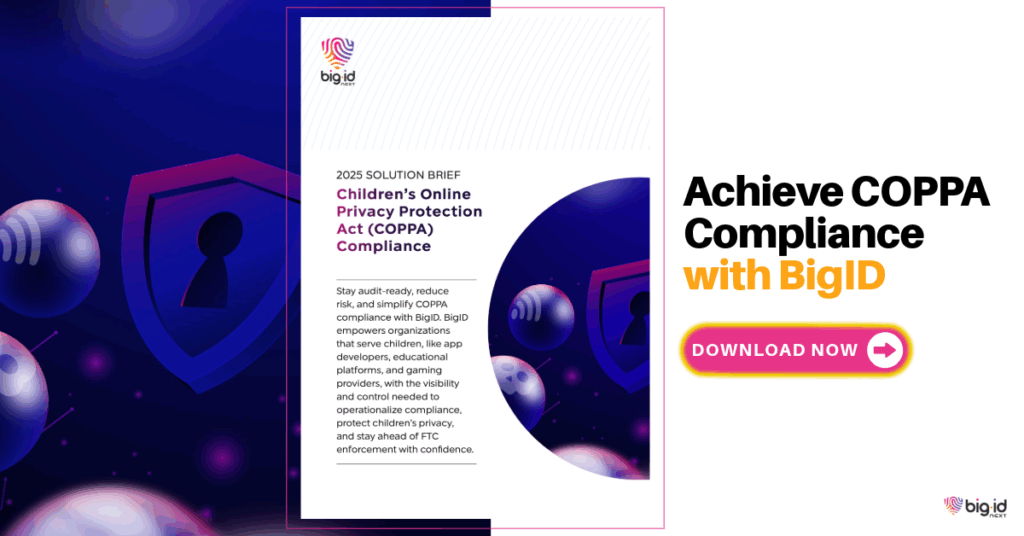The Children’s Online Privacy Protection Act (COPPA) has always placed limits on how digital services collect and use children’s personal information. But with the FTC’s 2025 COPPA update, the principle of data minimization has shifted from a best practice to a legal obligation.
Data minimization means collecting only the personal data necessary to provide the intended service and retaining it only for as long as needed. For organizations that build apps, games, learning platforms, or content for children under 13, this shift raises a critical question: Are you collecting too much?
This article explores how data minimization under COPPA works, why it matters more than ever, and how to implement it effectively with automation and accountability.
Why Data Minimization Matters for COPPA Compliance
Data minimization is a core principle of COPPA compliance because it limits the collection, use, and storage of children’s personal information to only what’s necessary. When organizations reduce the amount of data gathered, they lower their risk exposure, simplify consent requirements, and ensure faster, more secure deletion—all of which align with COPPA’s 2025 updates. Collecting less means protecting more.
Under the 2025 FTC rules, companies must now:
- Limit data collection strictly to what is necessary to support the core functionality of the service or product offered to children, avoiding any extraneous or non-essential data intake.
- Refrain from collecting personal information for speculative or secondary purposes, such as future marketing campaigns, product feature testing, or data monetization, unless verifiable parental consent is explicitly obtained.
- Establish and enforce data retention and disposal policies that enforce the secure deletion of children’s data once it is no longer necessary for the purpose for which it was collected, in compliance with COPPA’s storage limitation requirements.
- Maintain clear, documented justification for the collection of each category of personal information, including how it directly supports the product’s primary function and the legal basis for processing under COPPA.
What Counts as “Necessary” Data?
Under COPPA, “necessary” data refers to the personal information that is essential for providing the core functionality of a child-directed service—such as enabling gameplay, account setup, or educational content delivery. It does not include data collected for advertising, analytics, or future product development unless separate, verifiable parental consent is obtained. The FTC expects operators to justify why each piece of data is collected and how it directly supports the intended service, making it critical for businesses to align data practices with narrowly defined, purpose-driven use.
The FTC defines necessity based on the functionality of the service being offered. For example:
- A math learning app might need a username and progress history—but not a home address.
- A multiplayer kids’ game might need a device ID for functionality, but not voice or video recordings.
- An educational tool might need a parent’s email for consent, but not the child’s browsing history.
In short, just because a platform can collect something doesn’t mean it should.
Steps to Operationalize Data Minimization for COPPA
Here’s how to embed data minimization across your product lifecycle:
1. Audit Your Data Collection Practices
- Inventory what personal data you collect from users under 13
- Map data sources, systems, and third-party integrations
- Categorize data by sensitivity, location, and purpose
2. Establish Purpose-Specific Collection Rules
- Define and document why each data element is collected
- Align data collection with core functionality only
- Separate optional features (e.g., personalization, ads) and require separate consent if needed
3. Apply Retention & Deletion Schedules
- Set time limits for storing children’s data based on necessity
- Automatically delete data once its purpose has been fulfilled
- Retain proof of deletion for audits and regulatory review
4. Minimize Third-Party Sharing
- Review what data is shared with vendors, plug-ins, and ad tech
- Ensure contracts and practices align with COPPA’s data minimization expectations
- Disable or isolate third-party tools that collect excessive data
5. Empower Parents with Transparency & Control
- Make data use transparent via clear privacy notices
- Allow parents to review, correct, or delete their child’s data
- Provide simple opt-outs from non-essential data collection
How BigID Helps Automate Data Minimization for COPPA
BigID helps organizations put data minimization into action with intelligent automation and real-time visibility.
BigID enables you to:
- Discover and classify children’s personal data across all systems, including cloud, SaaS, and unstructured sources
- Tag data with purpose, consent status, and retention rules
- Enforce deletion workflows when data is no longer needed
- Track data flows to ensure minimal sharing with third parties
- Generate audit-ready documentation to demonstrate compliance
By centralizing data intelligence, BigID empowers privacy, product, and engineering teams to align with COPPA requirements without slowing innovation.
Less Data, Lower Risk, Greater Trust
When it comes to children’s privacy, over-collection isn’t just a bad habit—it’s a compliance risk. COPPA’s updated rules make it clear: data minimization is now the law of the land.
By focusing on what’s essential, deleting what’s not, and proving you did it right, your organization can reduce regulatory exposure, build parental trust, and deliver a safer digital experience for young users.
Connect with BigID’s privacy experts to see how to streamline privacy management while strengthening COPPA compliance. Schedule your demo today!


